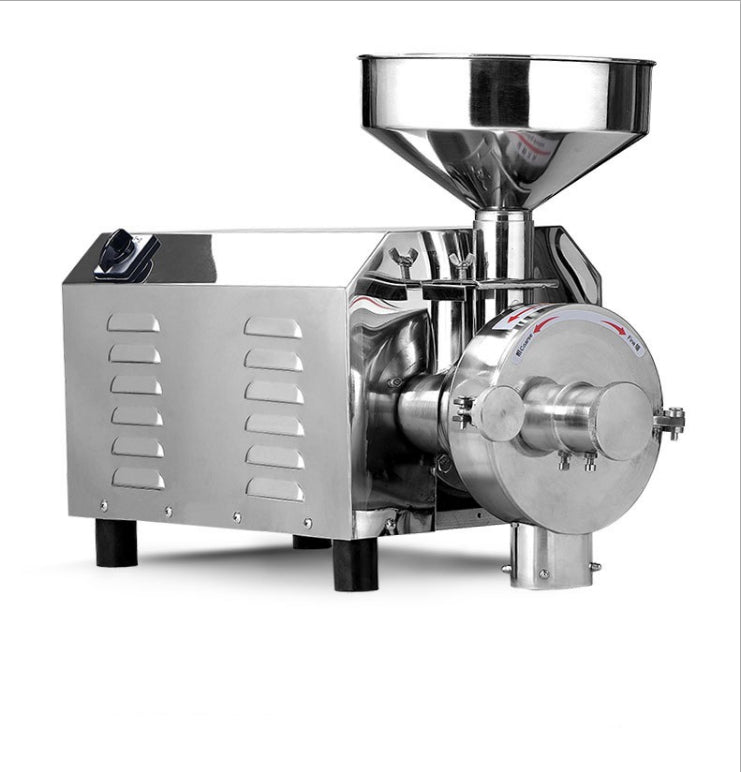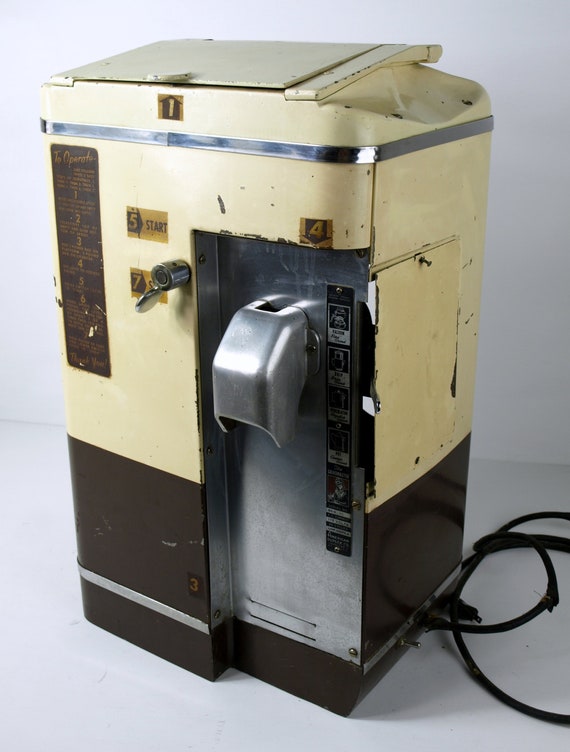Industrial Coffee Grinder: Choosing the Best Choice for Your Shop
Industrial Coffee Grinder: Choosing the Best Choice for Your Shop
Blog Article
How to Pick the Perfect Industrial Coffee Mill for Your Business
Selecting the suitable commercial coffee grinder for your organization is a complex decision that needs careful consideration of numerous vital factors. In addition, recognizing the various kinds of mills offered can considerably affect your functional performance.
Assess Your Grinding Requirements
When choosing an industrial coffee mill, one have to initially assess their grinding requirements to ensure ideal performance and consistency. This first analysis involves comprehending the volume of coffee to be refined daily, along with the wanted grind size for various developing methods. A high-capacity mill might be essential for businesses serving large amounts of coffee, while smaller sized procedures may discover a much more small model sufficient.
Furthermore, it is important to think about the sorts of coffee beans being made use of, as different beans might call for certain grinding methods to accomplish the very best flavor profile. Oily beans might necessitate a mill created to manage such attributes without clumping or overheating.
Another critical variable is the called for grind consistency. Specialized coffee services typically demand precise grind dimensions to boost removal and flavor, making it essential to pick a mill that can deliver consistent outcomes. Evaluating the readily available area and electrical requirements will aid in choosing a mill that fits perfectly right into your operational workflow. By thoroughly assessing these factors, organizations can make enlightened decisions that align with their coffee grinding requirements, inevitably resulting in a premium product and pleased consumers.
Understand Mill Kind
Recognizing the various kinds of industrial coffee grinders is vital for making an educated selection that meets particular operational demands. There are mostly 2 groups of mills: blade mills and burr mills.
Blade mills make use of rotating blades to cut the coffee beans, resulting in an inconsistent grind size - Industrial Coffee Grinder. While they might be extra affordable, they are typically not appropriate for business applications where accuracy is crucial
On the other hand, burr grinders offer a more uniform grind by crushing the beans in between 2 surface areas. They can be more classified right into level burr and conical burr mills. Apartment burr mills use a constant grind size and are generally favored for coffee prep work, while conelike burr mills are functional and can take care of a series of mixture techniques, from coffee to French press.
When picking a mill, take into consideration the details needs of your business, consisting of desired work consistency, production quantity, and the types of coffee beverages you intend to use - Industrial Coffee Grinder. Each grinder kind has its constraints and advantages, so understanding these subtleties allows educated decision-making that lines up with operational objectives
Evaluate Grind Dimension Consistency
Attaining grind size uniformity is vital for producing high-quality coffee, as variants in particle dimension can dramatically influence extraction and taste. When choosing an industrial coffee mill, it is essential to review exactly how well the machine preserves harmony in grind dimension throughout different sets. Inconsistent grind dimensions can lead to unequal extraction, leading to a mug that may taste weak or overly bitter.
To examine work size consistency, take into consideration grinders with functions such as adjustable grind setups and top notch burrs. Burr grinders, in specific, succeed in producing uniform bit dimensions compared to blade grinders. The material and form of the burrs play an essential role, with stainless-steel and ceramic alternatives offering sturdiness and accuracy.

Consider Manufacturing Capacity
In the fast-paced world of coffee production, thinking about manufacturing capability is extremely important for organizations intending to fulfill need without giving up top quality. The manufacturing ability of a commercial coffee mill directly influences a company's ability to fulfill orders efficiently, manage supply, and react to rising and fall market fads.
When examining manufacturing capability, it is necessary to assess the grinder's output price, commonly gauged in extra pounds per hour. This measurement should straighten with your organization's predicted sales volume and growth targets. For example, a café with a high turn over might need a grinder that can refine a number of hundred pounds daily, while a smaller sized procedure may be enough with a lower capacity version.
Furthermore, think about the kind of coffee being processed. Different beans and blends may influence grinding speed and efficiency, necessitating a grinder qualified of managing diverse production needs. It's likewise worth factoring in the mill's capacity to preserve regular high quality under high result conditions, as any kind of changes can affect the final product.
Inevitably, choosing a mill that matches your company's manufacturing capacity will certainly guarantee you remain affordable and responsive to consumer expectations.

Spending Plan and Upkeep Factors
When evaluating the ideal industrial coffee upkeep, mill and budget elements play a substantial role in the general decision-making procedure. A preliminary financial investment in read more a premium grinder can produce lasting advantages, but it's necessary to develop a clear spending plan that straightens with your business's operational needs. Think about both the acquisition rate and potential operational costs, such as power intake and substitute components.
Industrial coffee grinders require normal maintenance to guarantee optimal efficiency and longevity. Evaluate the supplier's suggestions for maintenance, consisting of cleansing schedules and components substitute, as these will affect lasting operational costs.

Purchasing a mill that is resilient yet easy to maintain can save cash over time. While lower-priced alternatives may be alluring, they may sustain higher upkeep prices and decreased performance. Eventually, stabilizing initial expenses with lasting maintenance and functional efficiency will lead you to the most effective selection for your business's coffee grinding requirements.
Verdict
Choosing the suitable commercial coffee grinder necessitates an extensive examination of grinding demands, mill kinds, grind dimension uniformity, manufacturing ability, and financial factors to consider. An appropriate mill not just boosts the top quality of the coffee generated however also adds to the general success and success of the enterprise.
Specialty coffee companies commonly require accurate grind sizes to boost removal and flavor, making it important to choose a mill that can supply uniform results. Apartment burr mills provide a consistent grind dimension and are normally favored for espresso prep work, while cone-shaped burr grinders are functional and can take care of a variety of brew approaches, from coffee to French press.
When choosing an industrial coffee mill, it is vital to assess how well the machine keeps harmony in grind dimension additional reading throughout different sets. Burr mills, in specific, excel in generating uniform particle dimensions compared to blade mills.Selecting the ideal commercial coffee grinder requires a complete assessment of grinding needs, mill kinds, grind size uniformity, production ability, and monetary factors to consider.
Report this page